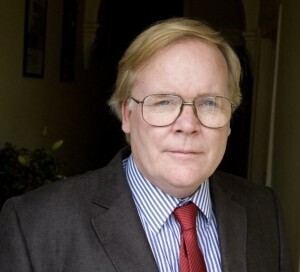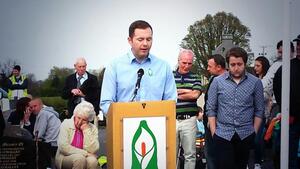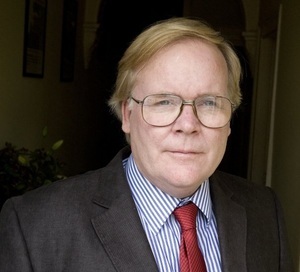From top: Bray Head, Bray, County Wicklow; Michael Taft
‘The words of the prophets are written on the subway walls and tenement halls.’
– Paul Simon‘As I went down in the river to pray, studying about the good ol’ ways, and you should wear the starry crown – good lord, show me the way.’
– African-American Slave Hymn
The first book I read, and the first book that was read to me, was the Bible. The first sin I was taught was the sin of racism. My mother was a fundamentalist protestant Christian. So was Dr. Martin Luther King.
So much of the progressive politics of my birth-country was rooted in faith – from the pre-civil war Presbyterian abolitionists; to many of the first trade unionists, gunned down by para-military agents of employers; to the founders of the Catholic Worker Movement; and the civil rights movement of the 50s and 60s. All were informed by a number of sources, and faith was one of them.
Why should we be surprised? The Old Testament prophet wrote:
‘Those who recline on beds of ivory and sprawl on their couches, who eat lambs from the flock and dink wine from by the bowlful, while anointing themselves with finest of oils – you have turned justice into wormwood and hate the man dispensing justice and detest those who speak with honesty.
You have imposed heavy rent on the people, extorting levies on their wheat. You have sold the poor for a pair of sandals and left the widow and orphan outside the city gate – I will destroy your mansions and all who dwell in them (only a few will escape to carry out the bones).
I do not want to hear your prayers; I do not want to smell your sacrificial feasts. ). I reject your solemn assemblies. I want justice to flow like a river. Thus speaks Yahweh.’ (Amos: 5 and 6).
Class war has nothing on this.
So, Easter Sunday. Christians celebrate Jesus’ physical resurrection from death and his return to the creator, his father.
All great religions have similar stories: the Jewish migration from slavery to the Promised Land, Mohamed’s first revelation in the cave outside Mecca, Buddha’s awakening under the Bodhi tree, Krishna’s counsel on the battlefield of life, Lao Tzu’s final advice before he leaves into exile.
These stories contain great sacrifice, great defeats and ultimately, great victory. We are, first and foremost, story-tellers and our first stories are those of struggle and liberation.
I may have moved away from my mother’s faith, but maybe because I grew up with it, the Christian story strikes me as particularly thought-provoking. For though there are mythological precedents, in the Easter narrative God (the Word made flesh) actually dies.It is a brave faith that contemplates the death of its deity. No wonder darkness descends, earthquakes rip open the tombs and the dead walk the city (Mathew 27: 51-53).
The first Christian telling of that Easter morning was not, however about how Jesus appeared to the many. All references to Jesus’ physical re-appearance were later textual interpolations.
That’s why none of the Gospel writers agree on the main points of what happened after the resurrection: Jesus ascended to heaven on the day of his resurrection or he spent 40 days on Earth; he appeared in his own form or in many forms; he ascended from Galilee or maybe from Jerusalem; and so on. Confusion? Yes. Important? No.
The earliest Christian manuscript, Mark, actually ends with Jesus’ disappearance, not his reappearance – a more ambiguous but, for me, a more provocative ending.
For on that first Easter morning, when Jesus’ mother, Mary Magdalene and Salome went to Jesus’ tomb to perform the death rituals they did not find him there or anywhere else.
All they found was a ‘young man’ telling them that Jesus wasn’t there, that he had risen. And what was their reaction?
The last line of the original Christian story puts it this way:
‘And the women went out and fled from the tomb, for trembling and astonishment had gripped them and they said nothing to anyone, for they were very afraid.’ (Mark 16:8)
The Christian faith was rooted in an empty tomb, a cryptic message from an unknown, unnamed man…and fear. And who brought this story to the world? Women – who in Biblical times were (and still are in so many places and households) treated as second-class, without rights, chattel. The Christian story of salvation starts with a confused message brought to the world by the marginalised.
Today, people celebrate the evolution of that Easter story – evolved not by hidden or supernatural forces – but by men and women filled with the Good News they now couldn’t wait to spread: that death has no domain, that the cryptic message is now clear as the darkness recedes; and that our original fear is not only conquered but transformed into celebration.
Or, put another way, we are no longer enslaved.
The lyrics of the African-American slave hymn quoted above contained hidden messages on how to escape – ‘to go into the river’ is advice to use the water to escape the scent of the tracker hounds; the ‘starry crown’ – use the stars to navigate; ‘show me the way’ – get to the Underground Railroad and, so, freedom).
On this Easter morning, so many here and throughout the world will wake up to fear – fear of a virus, fear of losing loved ones and friends, fear of what the future may hold (this is in addition to the millions waking up to hunger and war, exile and dispossession).
On this Easter morning, we have a choice.
We can hide in our fear, and passively submit ourselves to a future designed by others for others.
Or, coming out of this crisis, we can raise each other up and make clear the good news – of prosperity and hope, democracy and equality; from that tomb, that dark space of decay, comes a new light, a new recovery, a recovery where everyone is invited – no one left behind – to collectively rewrite what is now a desultory narrative.
It is our choice. It is in our power. This is Easter Sunday morning. It belongs to all of us.
Michael Taft is a researcher for SIPTU and author of the political economy blog, Notes on the Front. .
Pic: Bray.ie








…one of the first things exposed by this pandemic has been the worldwide futility of the ‘great’ religions…solidarity is the thing that will fight against this pestilence…it should not be hijacked by religious…or by sanctimonious trade unionists who sold out years ago…
no Easter egg for Bisted ;)
I agree btw
the superficial teenage boy has arisen
…Hahah…arisen…see what you did there Andrew …
Spot on Bisted
It will be interesting (socially distancing – wise) at Mecca (Ramadan) later this month.
He literally says at the end “it belongs to all of us” but maybe that inclusiveness wasn’t overt enough for you.
except every morning belongs to all of us, a message of hope doesn’t need to be tied in with a story of human sacrifice and sin etc, maybe the inclusion of that in Michael’s well meaning message isn’t ouvert for some and that’s Bisteds right to reject it on those grounds imo
Ah now Janet, it’s a message on Easter Sunday, and that message has its basis in the faith of the day that is in it.
I think you’re being too unnecessarily harsh on the piece, in fairness.
don’t mind me, I didn’t get an egg either ;)
Ah hear! Well now, that’s just not on! Sending well wishes your way for Easter :)
back at you Clamps x
that we can create something better through solidarity is precisely what Michael is saying
jeez, like
…like…better packages for SIPTU officials?
+1 BB
Anyone who reads Mr Taft’s regularly would see that, I believe.
^Mr Taft’s pieces
How wonderful.
Thank you for that, Mr Taft, especially positive message!
Nice piece Michael. I hope that people get actually more engaged with what is going on round them,and the decisions that are are taken on their behalf.Rather than acting out online with no real result or influence on anything
“One of the penalties for refusing to participate in politics is that you end up being governed by your inferiors.”
Andrew, I wonder if you could share with the rest of us some of the ways in which you “get actually more engaged with what is going on round them,and the decisions that are are taken on their behalf”
Get involved in your community, show up at public meetings, contribute to public consultations. Speak to and directly raise issues with you local public representative. Maybe even join a political party or run for office?
I thought someone with a username such as yours, might have an idea yourself? Or is your ‘engagement’ entirely of the anonymous online kind?
None of the above answers the question I asked you though does it “andrew”. My question was what YOU are doing? Or is your ‘engagement’ entirely of the anonymous online kind?
It all depends on how you define ‘participate’.
Good point about online comments (such as ours)… but an inclusive definition of politics is needed too.
Let’s try -ism. It hasn’t been tried before. That wasn’t real -ism.
Lovely piece Michael, thank you for sharing your very inclusive thoughts, even if that inclusiveness was elusive for some….
Happy Easter Michael :0)
Happy Easter Everyone. Have a lovely day!
Timely article. Rise up, and don’t believe the hype.
Wonderful post. Thank you.
“…collectively rewrite what is now a desultory narrative.”
– Very well put, the phrase of the day and probably the year at this stage. “Desultory”..
Another Easter Rising is definitely always a possible option…. Who knows, maybe it would wake up the sleeping giant of the masses and get the creative juices flowing again, if nothing else…
Who to play the part of the Jesus character and lead us all to the promised land?..
Whose the white private mick, whose the sage political socio-economic machine knowing all their tricks…
TAFT.. ! ?..
-Ya damn right.
:-J
I hear this playing in the background everytime I read an article by Taft !.
https://www.youtube.com/watch?v=rYriOuyJU5I
-Laying down the truth…
:-J
Trade union personnel never write in the personal philosophical-religious manner of Mr. Taft’s refreshing article. Usually I only glance at his economic commentaries – macroeconomic analysis can be so statistically other-worldly.
In the words of the great IWW hymn:
There’ll be pie in the sky by and by
When you die, by and by,
There’ll be pie in the sky when you die,
When you die, in the sweet by and by.